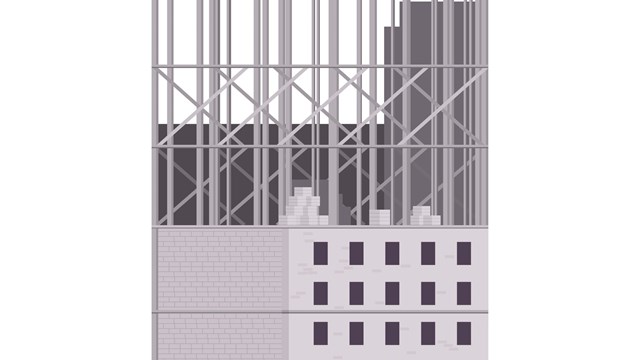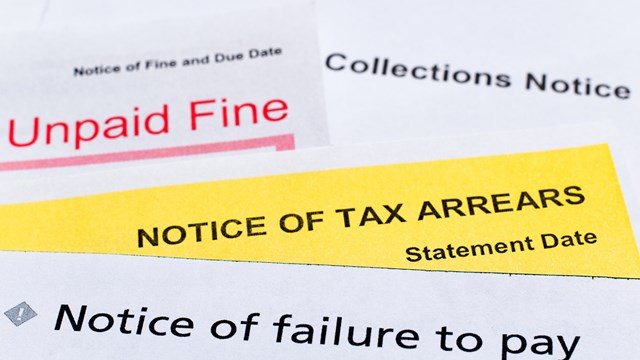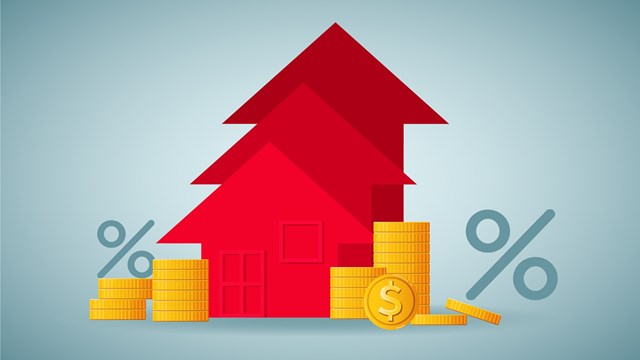Prices of most co-ops and condominiums in the New York metropolitan area—which nowadays extends as far west as eastern Pennsylvania and as far south as the lower Jersey shore—have reached stratospheric proportions. In once-blighted urban areas like Hoboken and Jersey City, prices are on par with, and in many cases exceed, dwellings in the outer boroughs of New York. And it's not just a few tony communities in Northern New Jersey that carry a big price tag—the whole suburban corridor has gone through the proverbial roof.
For the last two years or so, economists have played at Chicken Little, warning that the so-called housing bubble is soon to burst. While the sky has not yet fallen and no one has suggested that the market is truly cooling, it does seem to be slightly less searingly hot. For the first time in recent memory, the pendulum has begun to swing—albeit slowly, very slowly—in the other direction.
The combination of higher interest rates and greater home supply has produced the closest thing to a buyer's market in New Jersey in years.
A Buyer or Seller's Market
Why would rising interest rates herald the end of a seller's market? If it is time to buy, how much co-op or condo can potential buyers afford? What kind of financial shape should they be in, to pass the screening process? Finally, what kind of shape should be co-op or condominium development be in, in order to entice the right buyers? Let's take a look.
The first indication that the momentum is shifting is that there are more houses on the market than there were a year ago - 20 to 25 percent more, in a 30-mile radius of New York, than in 2005, according to Tom Mayer, a real estate broker with Weichert Realtors in Pompton Plains. The glut of available homes means that buyers have more to choose from, and thus more inclination to be choosy, and that sellers have more competition, and thus less inclination to hold the line.
"There's tremendous inventory right now," Mayer says. "People are seeing what they can get before they buy."
That there is more supply than in years past, however, does not necessarily indicate a slow-down, he says. He still works seven days a week, from when he wakes up in the morning till late into the evening.
"Attractively-priced, good homes sell. Overpriced ones are still on the market or have been withdrawn. All it means is, if you're going to sell, your house better look good."
The second component is that interest rates are the highest they've been in years, and are probably not done rising. The Federal Reserve Bank, which in effect sets the prime rate from which other interest rates are derived, will likely continue to raise the federal funds rate incrementally, as it has done each quarter for many months, to stave off inflation.
At first blush, it makes no sense that rising interest rates should contribute, directly or indirectly, to a housing market more conducive to buyers. Higher rates mean higher monthly mortgage payments, after all. So what gives?
According to the experts, the concept is counterintuitive. Indeed, higher rates scare off a lot of buyers—just as plummeting stock prices scare off many investors. To combat the double scourge of fewer buyers and more competition, sellers, in time, will have to lower their asking prices.
Yes, the monthly payment—the principal plus interest - will be about the same. Initially. But the high interest rate can be refinanced when the rates go down again (whereas those who buy at low rates have no such option). In the meantime, the interest on the loan is tax-deductible. So if you have the means to do so, buying for the long haul, in the current climate, makes good financial sense.
Finance Formula
If there is a formula for determining how much buyers can spend on a co-op or condo—or any primary residence, for that matter—it is this: according to Alan Bedner, the executive vice president and chief financial officer of Unity Bank in Clinton, the purchase price should be about two times the buyers' current yearly salary, maybe two-and-a-half times, at a low rate of interest.
That said, says Bedner, "Lending is not an exact science."
In the vetting process, banks consider a broad cross-section of data: outstanding debt, lines of credit, salary, other income streams, payment history, and the enigmatic and inscrutable credit rating. Potential borrowers are considered on a case-by-case basis, and there are almost as many exceptions as rules.
"A cash business might not show a lot of income," Bedner says, "but we'd make the loan based on assets."
If a borrower had a so-so credit history, but could put half down, he'd probably get the loan, Bedner says, because the "L-to-V"—loan to value—ratio is so good. If the bank had to foreclose on the house, they'd almost certainly get their money bank, even at a foreclosure sale.
Ensuring high loan-to-value ratios is one reason many co-ops require a minimum down payment, usually 20 percent. Condominiums, which far outnumber cooperatives in New Jersey, often require a 10 percent down payment.
Some banks, Bedner notes, are more conservative than others when doling out loans. Indeed, with the surfeit of lending institutions a DSL-connection and mouse-click away, it is not unheard of for a bank to lend considerably more than twice your yearly salary. One potential buyer I spoke to was pre-approved for a loan of up to $400,000—on a salary of about $65,000 per year, or six times the annual salary.
"It depends on the lender and on the credit risk," he explains.
If there are lenders willing to issue loans of that amount, the onus is on the buyers to budget themselves accordingly, and not to bite off more than they can chew financially.
While he acknowledges that "higher-end houses have declined somewhat," Bedner, for his part, sees no impending bubble-burst.
"The first quarter [of 2006] was soft, but that's typical for this climate. It's colder, and people have the holidays to deal with. It starts to heat up in the summer."
Passing the Boards
Purchasing a condominium comes with fewer restrictions than purchasing a cooperative apartment.
"Condominium homeowners associations cannot reject potential buyers," says Alfred Ojejinmi, CPM, a certified property manager and a director with the Wentworth Group in Hackensack. "That is the purview of the co-op."
Owning a condominium is similar to owning a conventional house, in that the owner of the unit carries the mortgage and pays property taxes directly. In addition, condos may be rented out without board approval, just as a house can, and thus are often purchased as investment properties.
A condo's board of managers makes financial decisions related to common charges—maintenance costs for common areas such as swimming pools, landscaped areas, sidewalks, tennis courts, and so forth - but not for the individual units.
In order to sell, an owner must receive a Waiver of the Right of First Refusal from the board. In effect, this waiver prevents banks from physically foreclosing on property in the event of default.
The lion's share of New Jersey co-ops are concentrated in the northeast—in Weehawken, Hoboken, Cliffside Park, Union City and Fort Lee. At a co-op, the corporation pays the mortgage and real estate taxes on the entire building. Co-ops must approve all buyers; they can be selective if they wish to be. Because potential buyers must interview with, and be approved by, the board, the selling/buying process is more complicated. Co-ops are also harder to rent out.
Homeowners associations and banks, in vetting potential buyers and borrowers, look primarily at financing. Buyers should do the same thing, Ojejinmi advises, before buying into a condo or co-op.
"Look at the statements of accounts, so you know how they've been funding everything. They should have enough in reserve to pay for things that come up, so they don't have to do an assessment" for renovations and improvements like a new roof, elevator repair, and so forth.
While most homeowners associations are above-board—state regulations and the transparency of business operations help in this regard—some are better than others. "Look for the number of delinquent owners, people who don't pay their dues," Ojejinmi says. "You would be paying to subsidize them, if you bought in."
Hiring an experienced real estate lawyer will go a long way in helping with the paperwork. Good lawyers help the buyers sift through figures and documents that might otherwise be bewildering.
He also advises studying the bylaws, the house rules, and other regulations. "You don't want to have a dog, and then buy a condo and find out you're not allowed to have a dog there."
His parting words mirror the Latin phrase "caveat emptor" - "Go in knowing what you're buying. Get yourself informed about it."
These words of wisdom always apply, whether it's a buyer's market or a seller's market.
Greg Olear is a freelance writer based in New Jersey.







Leave a Comment